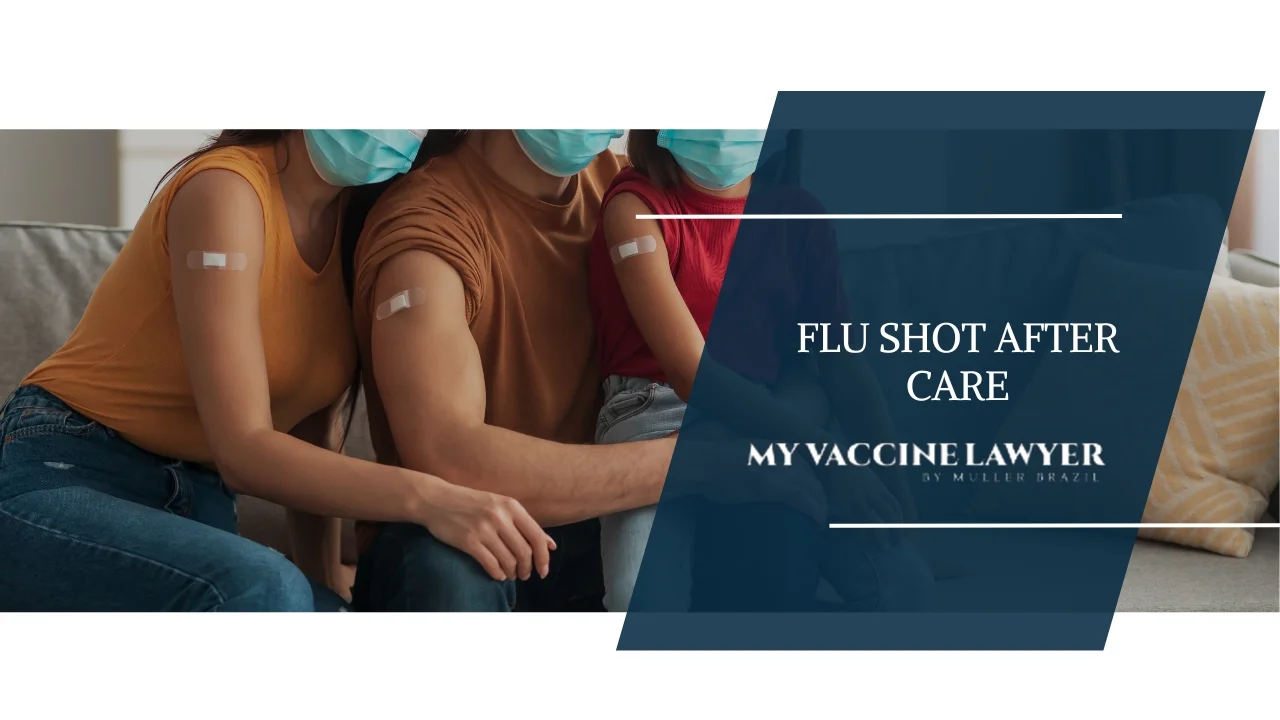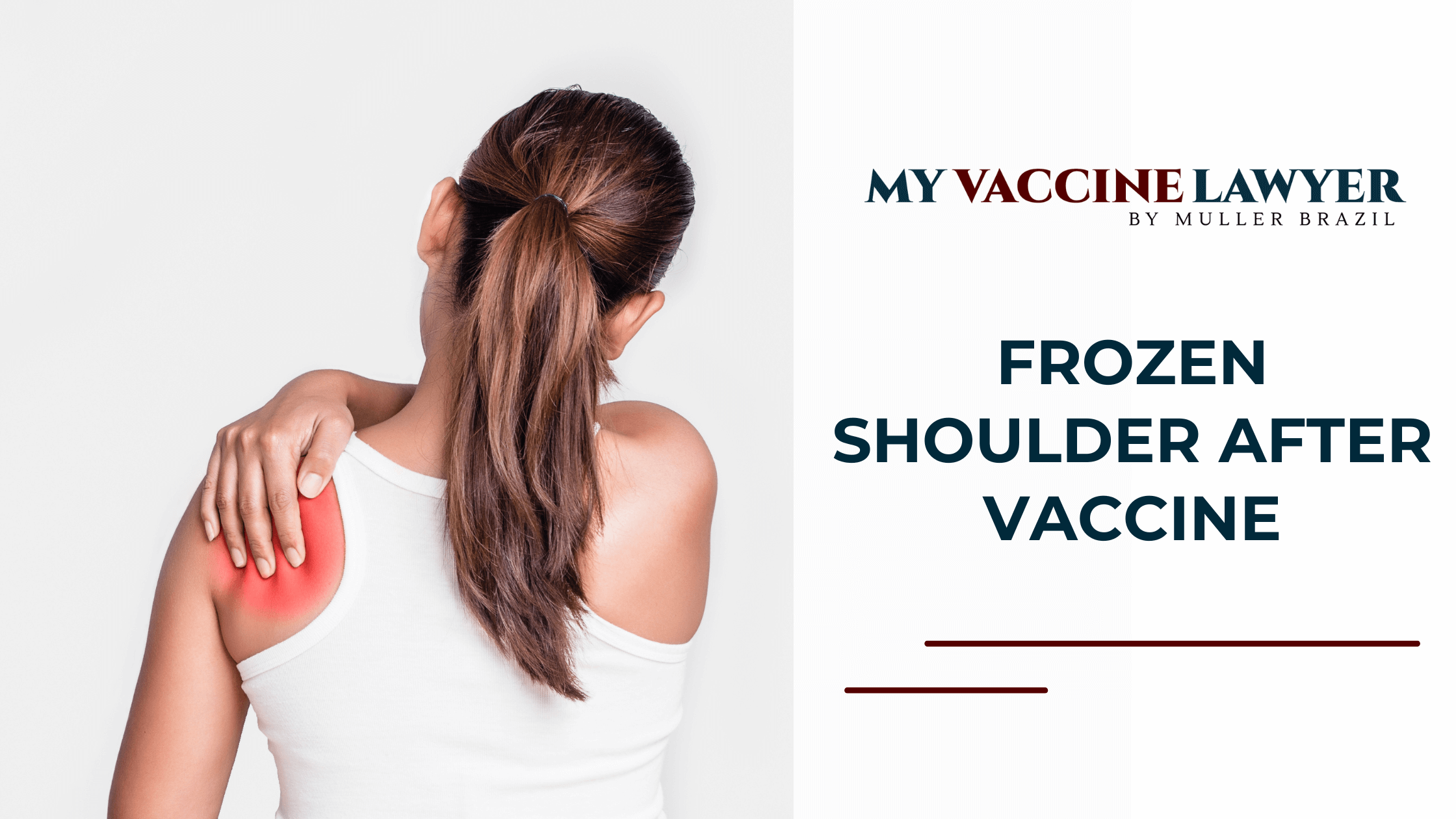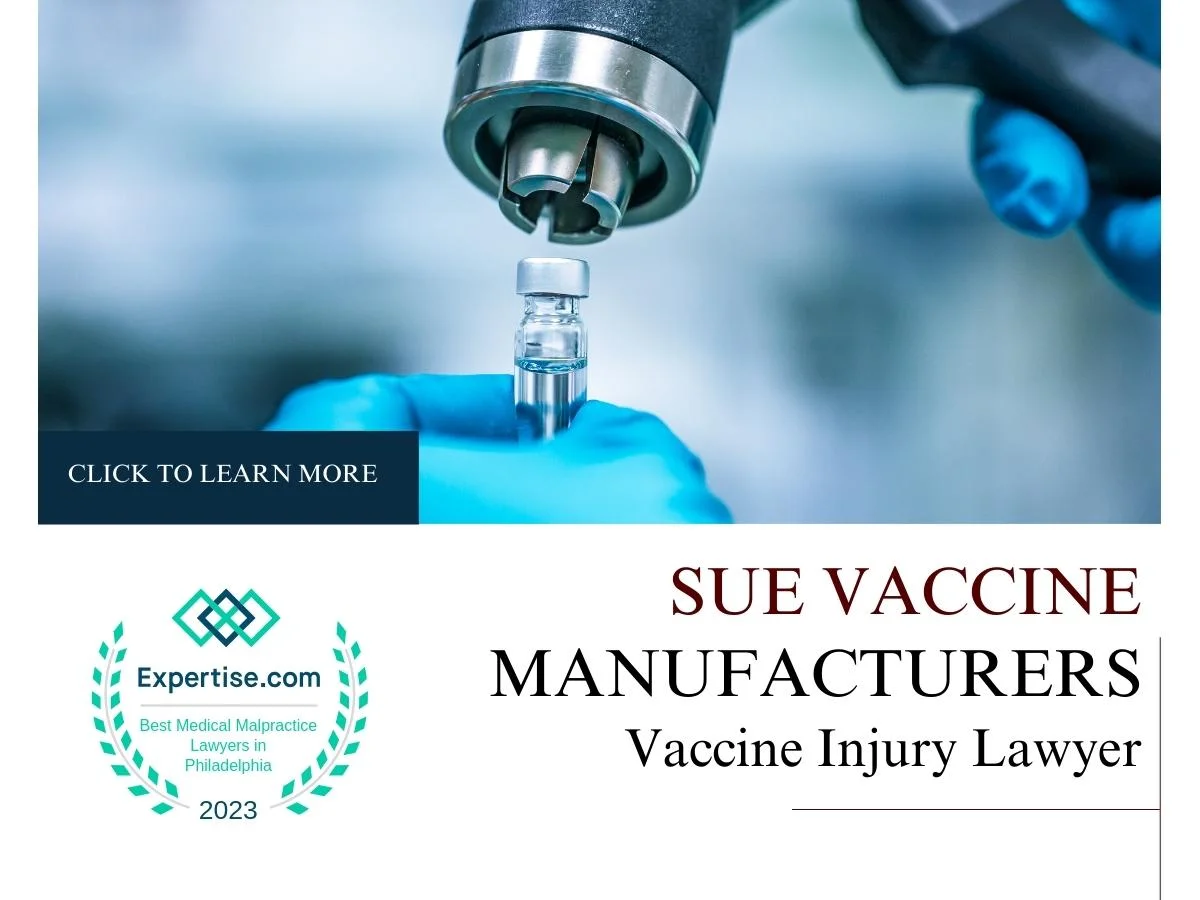What to Avoid After a Flu Shot
Most people walk out of the doctor’s office after getting a flu shot and never think about it again. But not everyone is that lucky. A stiff arm is...
6 min read
Vaccine Injury Law Resources / Vaccine Injury Lawsuit / Can You Sue a Vaccine Company or Manufacturer?
 Max Muller
:
Dec 15, 2022 3:38:24 PM
Max Muller
:
Dec 15, 2022 3:38:24 PM
When vaccine injury strikes, justice starts with the programs built to pay claims, not vaccine manufacturers
Most people believe that lawsuits against vaccine manufacturers work the same way as lawsuits against drug companies. The truth is that federal law, health and human services oversight, and the public health service act create a different process for vaccine injury. This framework exists to protect vaccine supply while still providing compensation to individuals harmed by adverse events and covered vaccine injuries. Numbers prove it: more than $4.9 billion in awards have been granted through federal claims programs on behalf of vaccine recipients since 1988.
The stakes are high. A vaccine caused injury means medical costs, lost income, and lasting harm caused by side effects that meet strict medical criteria. Claims are not filed against vaccine companies directly but are handled through the vaccine injury compensation program under the jurisdiction of a court appointed special master. That system recognizes risks, weighs evidence, and awards compensation through government-managed funds, not through lawsuits against vaccine makers.
The short answer is almost always no. Federal law protects vaccine manufacturers from direct lawsuits. That protection comes from the public health service act and the PREP Act, which keep the vaccine supply stable during times of high demand. Without those protections, vaccine makers could be forced out of production by liability risks.
Instead of lawsuits in state court, claims move into the federal claims system. There, a petition is filed on behalf of the vaccine recipient, and a court appointed special master reviews evidence against strict medical criteria. The process is unique: compensation can be awarded even if the injury would not meet traditional tort law standards. This structure is why most cases never involve suing a vaccine company directly, but still create a pathway to justice for individuals harmed by covered vaccine injuries.
Direct lawsuits against vaccine companies don’t fund compensation. Instead, the money comes from a federal trust established under the act passed by Congress in 1986. That law created such provisions to shift liability away from vaccine manufacturers and into a system backed by government resources. The goal was simple: protect public health while awarding compensation to individuals harmed by a covered vaccine.
Here’s how it works in practice:
Excise tax on each vaccine – Every vaccination carries a small tax, collected at the time of purchase.
Fund managed by Health and Human Services – The services administration oversees this pool of money, earmarked solely for vaccine injury claims.
Compensation awarded through federal claims court – A court appointed special master reviews evidence and issues a preliminary recommendation, which becomes the basis for an award.
The history makes the structure clearer. In the 1950s, Cutter Laboratories released polio vaccines that were not properly prepared, and children contracted polio as a direct result. Lawsuits nearly collapsed the vaccine supply, and the case showed Congress the risks of leaving liability unchecked.
By setting an effective date for a new federal claims system, lawmakers created a program that could award compensation without forcing vaccine makers out of production. That’s the system that continues to serve vaccine recipients and their families today.
Reality: Many claims involve common side effects linked to vaccine administration. Shoulder injury related to vaccine administration (SIRVA) is the leading example. It occurs when an injection is given too high or too deep, damaging tissue at the injection site.
Federal data shows SIRVA accounts for more than half of petitions filed in recent years, and awards regularly cover medical treatment and lost wages. Other conditions, like Guillain-Barré Syndrome, are also recognized as vaccine related injuries under the medical criteria used in federal claims court.
Reality: Every claim is carefully reviewed, and the process takes time, but it is built to deliver real awards when the evidence supports the injury. A court appointed special master examines medical records, applies the medical criteria for a covered vaccine, and makes a recommendation.
While some cases extend over several years, families regularly receive compensation for medical costs, ongoing care, lost income, and in rare cases, death benefits. With legal representatives guiding the process, petitioners are positioned to secure full recognition of the harm caused and the compensation they deserve.
Federal law protects vaccine manufacturers, but it does not leave injured people without a path forward. Instead, legal representatives file claims on behalf of vaccine recipients in federal court, where a special master reviews the evidence. Vaccine lawyers focus on this process every day, making them uniquely equipped to present claims that meet the medical criteria and secure compensation. Importantly, petitioners do not pay attorney fees, those costs are covered by the program itself.
Fact: The Health Resources and Services Administration confirms that attorney fees in the vaccine injury compensation program are paid separately from the award. Families do not lose a portion of their compensation to legal bills.
The numbers also support the role of representation. Studies of federal claims show that petitions handled by vaccine injury lawyers succeed at higher rates than those filed without professional guidance. Legal guardians filing on behalf of children, or disabled adults, particularly benefit from having counsel who can navigate the evidence, connect medical records to a causal relationship, and pursue the maximum award available under the program.
The vaccine injury compensation program, often called VICP, is the central path for most federal claims involving a covered vaccine. Created by Congress in 1986, it shifted liability from vaccine makers to a government-managed system that protects public health while still awarding compensation for vaccine related injuries.
How the process works:
Filing the petition — A legal representative or vaccine injury lawyer submits a claim in the U.S. Court of Federal Claims.
Review by special master — A court appointed special master evaluates the evidence, applies medical criteria, and issues a preliminary recommendation.
Government response — Health and Human Services reviews the recommendation, while the Department of Justice may provide input on behalf of the government.
Award compensation — If approved, the program pays for medical costs, lost wages, pain and suffering, and in rare cases, death benefits on behalf of families.
One case shows the system in practice. A child contracting polio from a vaccine manufactured decades ago was compensated under the program because the evidence demonstrated a clear causal relationship. That example highlights how the services administration, guided by federal law, balances vaccine safety with justice for individuals harmed. While state law claims are blocked, the federal program provides a structured and proven path to compensation.
In most cases, federal law shields vaccine companies from liability. But there are rare cases where lawsuits against manufacturers are allowed. These claims fall outside the vaccine injury compensation program and depend on strict legal standards.
Examples of exceptions include:
Improper manufacturing — If a vaccine is not properly prepared in material respects, as in the Cutter Laboratories case, and the error directly causes harm.
Failure to provide proper directions — When manufacturers do not include required instructions for safe use, creating risks beyond expected side effects.
Conduct outside program coverage — If a vaccine or situation falls outside the list of covered vaccines or established federal protections, state law or tort law claims may apply.
These situations are not the norm, but they illustrate that federal law does not provide absolute immunity. Evidence must clearly demonstrate the harm caused by the manufacturer’s actions, and legal representatives are essential to proving those claims in court.
The vaccine injury compensation program is not simple. It runs through the U.S. Court of Federal Claims, with every petition judged by a special master under strict medical criteria. These cases are complex, and success takes more than paperwork, it takes a legal team willing to fight for every detail. That’s where My Vaccine Lawyer steps in.
At My Vaccine Lawyer, we do not sit back and hope the system works itself out. We push. We challenge. We dig into medical records, question experts, and demand recognition for the harm caused. Our attorneys throw themselves into every case because families deserve more than a chance, you deserve results.
What sets My Vaccine Lawyer apart:
Aggressive representation — We attack the evidence, expose weaknesses in government defenses, and drive claims until they succeed.
Experience under pressure — Our team knows the vaccine injury compensation program inside and out, and we use that knowledge to stay three steps ahead.
Relentless pursuit of awards — We don’t stop at “good enough.” We fight for full compensation — medical costs, lost wages, long-term care, and in rare cases, death benefits.
Most cases against vaccine manufacturers never reach a courtroom. But in the federal system, results belong to those who refuse to accept obstacles. My Vaccine Lawyer is that firm. If you or a family member suffered a vaccine injury, call us today (800) 229-7704 or via our online form and see what relentless representation looks like.
Mr. Muller currently devotes the majority of his law practice to aggressively fighting for the victims of unsafe drug and medical device injuries, as well as vaccine injuries and vaccine reactions involving the flu shot, TDaP/DTaP vaccine, and more. He has handled hundreds of SIRVA injury cases (shoulder injury related to vaccine administration), especially those involving bursitis, tendonitis, frozen shoulder, and rotator cuff tears. Mr. Muller also handles cases where vaccines caused serious nerve injuries such as Guillain-Barre Syndrome. Mr. Muller has recovered millions of dollars in compensation for his clients in the Vaccine Injury Compensation Program.

Most people walk out of the doctor’s office after getting a flu shot and never think about it again. But not everyone is that lucky. A stiff arm is...

Frozen shoulder after vaccine claims are rising, and so are settlement values. Clients presenting with painful shoulder stiffness, reduced range of...

Vaccines play an important role in protecting older adults, especially those who are homebound and face specific challenges in accessing healthcare...
